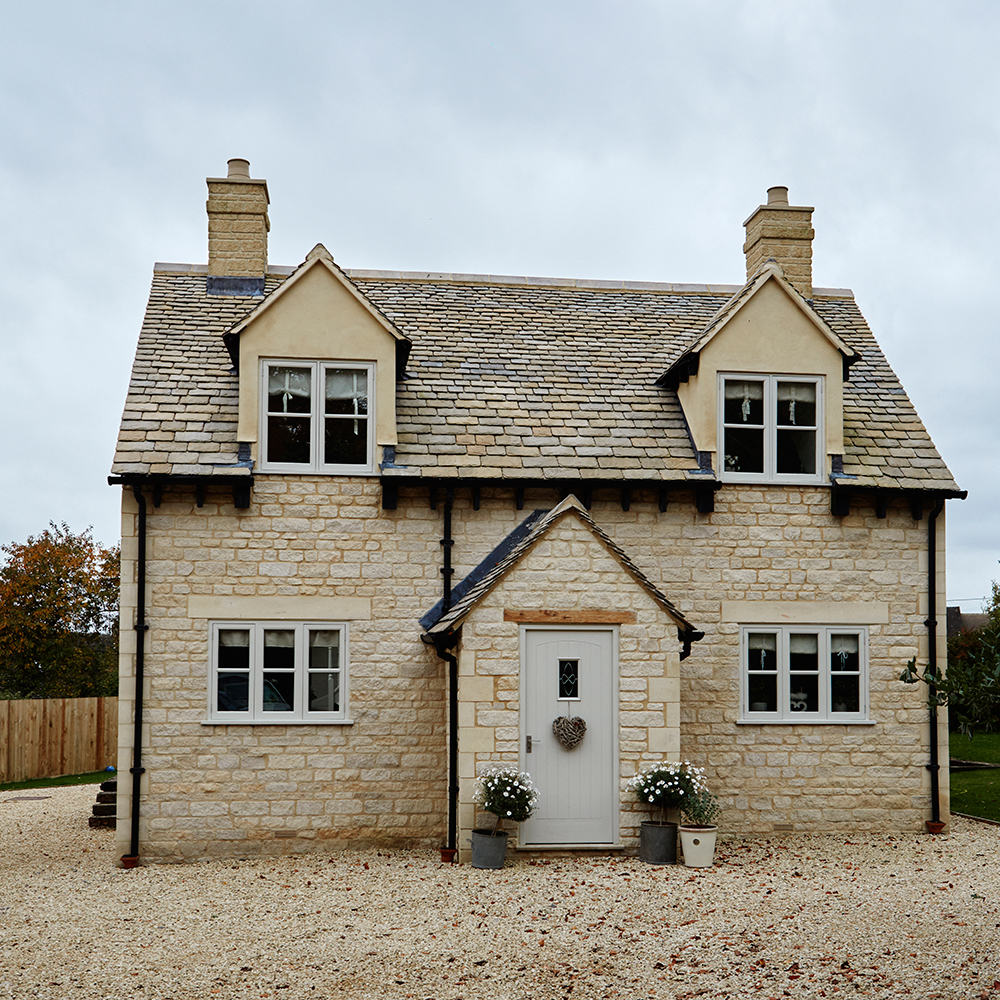Mortgages in later life – a guide for mature borrowers
Later life mortgages are aimed at the over 55s who wish borrow or release equity as they enter retirement
Sign up to our newsletter for style inspiration, real homes, project and garden advice and shopping know-how
You are now subscribed
Your newsletter sign-up was successful
Lenders used to be wary offering mortgages to people of retirement age in their later lives. The snag being they may not continue earning a salary for the full term of their mortgages. But there are now are more specialist products for the over sixties.
Here’s what you need to know later mortgages in later life, and how you find the best mortgage rate for you.
Mortgages in later life, explained

Mortgages in later life are a fast-growing area of the mortgage market. New mortgage lending where loans extend beyond the borrower’s 65th birthday now account for more than 50% of all homeowner loans. This is the first time this has been the case since records began, according to research from UK Finance.
What is a later life mortgage?
Mortgage products known as Lifetime Mortgages are tailored to an older generation. They are open to those who match a certain criteria. Applicants benefit form certain advantages, just as first time buyer mortgage applicants do.
Although they come at other end of the spectrum; later life mortgages tend to be specialised in the same way.
Who lends to older borrowers?
It’s generally the smaller building societies rather than the high street banks that will lend into your sixties, seventies or even eighties. Note that any advertised age limit on a mortgage product is usually the maximum age at the end of the mortgage term, not the start.
Some lenders, such as the Suffolk and Dudley building societies, don’t have any maximum age limit for mortgage lending. The Newbury has an upper age of 99 for mortgage applications on some products.
Sign up to our newsletter for style inspiration, real homes, project and garden advice and shopping know-how
Some lenders also offer tailored products with no early repayment charges. This means greater flexibility (and saves money), if your circumstances suddenly change and you need to move.
Later life mortgages – do pensions count?
If you’re taking on a mortgage in your sixties or beyond, lenders must ensure you can make repayments for the full mortgage term. Therefore, they will probably include your pension pot when doing their calculations.
'Being on a pension shouldn’t hold you back,' says Miles Robinson, head of mortgages at online mortgage broker Trussle. 'There are a number of high street lenders who will lend past the age of 60, providing you can show proof of pension income.'
The Suffolk Building Society takes 'available pension funds into consideration, not just standard pensionable income,' explains Charlotte Grimshaw, Head of Mortgages. This can be important in boosting your borrowing ability.
'The society will now take 80% of the value of a pension fund that is not being drawn. Then, divide it by the mortgage term, and use this as gross income to support the applicant's affordability assessment,' Charlotte explains. 'However, borrowers are entitled to withdraw the 25% tax free amount, or more, if they choose to do so, before the remaining pot is used in calculations.'
Mortgages in later life options

Older borrowers don’t always need specialist products. One option is to apply for a standard mortgage and make monthly repayments in the usual way. Although, though some lenders will have upper age limits,' says Andrew Hagger, Personal Finance Expert from Moneycomms . 'The majority of mainstream lenders will lend until age 75, with Yorkshire and Skipton building societies up to 80,' he says.
Interest only mortgages may also be an option depending on your age, according to Miles Robinson. 'Many high street lenders tend to cap interest only lending to the age of 70, even if there is a large amount of equity in the property. But a number of lenders have introduced 'retirement interest only' products which allow buyers to take interest only borrowing beyond the age of 70.'
Retirement Interest Only mortgages (RIO)
This is a newer option, available from lenders including Nationwide Building Society, Legal & General, Halifax, and the Family, Cambridge and Newbury building societies.
The ‘interest only’ mortgage, can be used for house purchases as well as remortgages. Repayments cover the interest on the loan, with the amount borrowed repaid from the sale of your property when you sell up or pass away.
Such deals are typically available from age 55 upwards, although some lenders impose minimum age limits of 65.
On the plus side, the monthly payments will be lower than on a standard repayment mortgage. However, this type of mortgage will have repercussions if you’re looking to leave your home to your family.
How much you can borrow depends on the lender. The Nationwide, Family and Newbury building societies all lend up to 50% of the purchase price. Do check any set up costs, as these can vary.
Unlike, traditional fixed term mortgages, loan terms can be open ended with no fixed end date. But retirement interest only mortgages shouldn’t be confused with equity release plans. The big difference is that with equity release, you don’t make any repayments. The interest is rolled up and repaid, along with the original loan, when your property is eventually sold.
Ask your children for help

Another option according to Miles Robinson at Trussle is taking a ‘joint borrower sole proprietor mortgage,’ (JBSP).
'This type of mortgage allows for the applicant’s children to appear on the application, therefore boosting their parents’ income.' However, this will affect your children's borrowing potential as they will be jointly liable for the repayments.
How to get the best deal
Having a good credit history and means of repayment are key to securing the best deal.
'Your choice will be limited if you have a poor credit history, or lack one altogether. This will make the interest rate higher as with standard mortgages,' warns Andrew Hagger.
Before speaking to prospective lenders or mortgage brokers, it’s worth checking your credit file with all three credit reference agencies, Experian, Equifax and TransUnion.
Life insurance
There’s no legal obligation for anyone, of any age, to take life insurance with their mortgage loan. However, they can offer peace of mind as they pay a lump sum on death that can be used to pay off your mortgage and provide financial security for your family.
When it comes to older borrowers, life insurance is unlikely to be an issue. According to Andrew Hagger, 'it would prove prohibitive for borrowers over 60, particularly if they have pre-existing health issues.'
For older borrowers, seeking legal advice or having a Lasting Power of Attorney, (LPA), in place may be a condition of a mortgage deal. An LPA is a legal document that hands over the power of decision making to someone you trust, in the event you’re seriously unwell. The Citizens Advice Bureau has more information on LPAs.
The Suffolk Building Society insists applicants over 75 seek independent legal advice and, along with the Newbury and Cambridge, recommends borrowers register an LPA, (for property and financial affairs), with their mortgage, The Saffron Building Society offers a discount on RIO mortgage rates if borrowers arrange an LPA prior to the completed application.